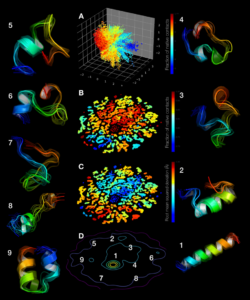NASEM’s report on Digital Twins is now available!
“Foundational Research Gaps & Future Directions for Digital Twins,” published by the National Academies of Sciences, Engineering, and Medicine (NASEM) identifies cross-sector challenges and recommendations to support this potentially transformative approach for biomedical research. Priorities include development of multi-agency collaborations with industry to advance the mathematical, statistical, and computational…
CloseRequest for Information: Calling all Researchers and Healthcare Community Contributors
NEW NCI Childhood Cancer Data Initiative (CCDI) Request for Information (RFI) on Electronic Health Record (EHR) data! Responses due using the submission webform by February 29, 2024. NCI’s CCDI invites participation from all stakeholders across the cancer research and health care community including vendors and developers in understanding information on existing capabilities for automated EHR…
Close
Read the resulting whitepaper: Predictive Radiation Oncology – A New NCI–DOE Scientific Space and Community
Workshop Series
In March 2021, Four Interactive, Multidisciplinary Workshops + a World Café* were held to help shape a “Blue-Sky” vision for the future of Radiation Oncology:
March 10, 2021, The Biological Machinery for Advancing Radiation Oncology: Mechanisms, Systems and Simulations (Topic Hosts: Michael Espey, PhD, and Cynthia Keppel, MSc, PhD)
March 12, 2021, The Frontiers of Computational Modeling and Simulations in Multiscale Radiation Oncology (Topic Hosts: Nathan Moore, PhD, and Matthew Coleman, PhD)
March 18, 2021, Learning from Care Delivery: The How and Why of Multi-omics, Biomarkers and Prediction for Radiation Oncology (Topic Hosts: Maximilian Diehn, MD, PhD, and Greeshma Agasthya, PhD)
March 19, 2021, Multimodal Patient Trajectories: Individual Predictive Modeling (Topic Hosts: David Jaffray, PhD; Christopher Hartshorn, PhD; and Georgia Tourassi, PhD)
March 29, 2021, World Café-style* Workshop – Fusion of the Half-day Workshops Culminating in a Directional Whitepaper on The Future of Data and Computing-Enabled Radiation Oncology
Watch the event Kickoff Video to hear from global experts in Artificial Intelligence, Computing & Radiation.
Speakers Included:
- Caroline Chung, MD, MSc., FRCPC, CIP, Department of Radiation Oncology, The University of Texas MD Anderson Cancer Center, Houston, Texas
- Kelvin Droegemeier, PhD, MS, School of Meteorology, University of Oklahoma
- Karen E. Willcox, PhD, MNZM, Oden Institute for Computational Engineering and Sciences, University of Texas at Austin
Purpose of the Workshop Series
Explore emerging and futuristic opportunities among DOE, NCI, and partner institutions to advance radiation therapy. Essential components include:
- Personalized, adaptive, improved treatment through understanding and development of mechanism-based, computationally enabled modeling
- Advanced computing to achieve dynamic, multiscale, data-informed, clinically actionable predictions and decision making
Anticipated Outcomes
- Creation of scope and goals for potential new NCI-DOE Collaboration projects
- Development of a multi-institutional report with a visionary perspective
- Opportunities to engage and collaborate with cross-domain researchers and clinicians
This workshop series offered an opportunity to determine a roadmap for cutting-edge, multidisciplinary research that will drive the development of new paradigms in radiation oncology.
Who attended?
- U.S. and international researchers and clinicians at all levels of seniority with diverse expertise across the continuum of cancer research, radiology, artificial intelligence, scientific computing, data science, biomedical engineering, bioinformatics, physics, and mathematical modeling—including mechanistic, data-driven, and multi-scale modeling
- People who are passionate about accelerating cancer research and excited about exploring how emerging technology can advance radiation oncology and precision cancer medicine
* A World Café is a discussion format for a challenge or vision that calls for a broad range of disciplines (or diverse set of stakeholders) to all contribute to a vision or plan. A World Café groups each of these stakeholder groups or disciplines together, and then rotates the topic moderators around to each group to consult with each group, developing the vision or plan in an iterative fashion.
